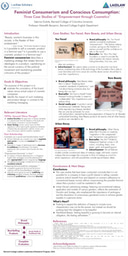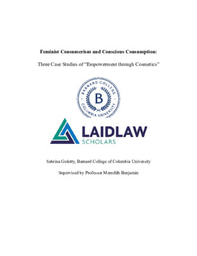Laidlaw Draft Abstract
There is a strong precedent of cosmetics corporations using feminist ideals to promote products to a morally-minded audience in a phenomenon known as feminist consumerism. This paper will focus on the particular mechanics of feminist consumerism in the past decade (2010 - 2023) to explore the implications of this upon women. How have cosmetics brands in the past decade incorporated feminist ideas into marketing efforts? Supplemental questions include: what are the particular linguistic mechanisms used to promote a product to a target audience of women? What are the different feminist concepts involved in various advertisements, and how is their inclusion meant to impact the audience? What possible implications could this have on women’s product consumption? What are the possible implications on the female psyche and self-image?
To answer these questions, I will be conducting a content analysis on four of the ten highest-grossing internationally-operating cosmetics brands: Too Faced Cosmetics, Clinique Laboratories, Urban Decay, and Rare Beauty. I will be analyzing these brands as individual case studies, cross-referencing three areas: their stated brand ethos, best-selling flagship products, and advertisements on those products that ran in the past decade (2013-2023). My analysis will take a combined visual and linguistic approach, informed by feminist media theory and past scholarship on feminist consumerism. My analyses will aim to identify similarities and variations in the mechanisms of feminist consumerism across brands. This paper will deconstruct the process of feminist consumerism to shed new light on the individual and broader implications of female cosmetics usage, and the impossibility of reconciling consumerism and feminism.


Please sign in
If you are a registered user on Laidlaw Scholars Network, please sign in